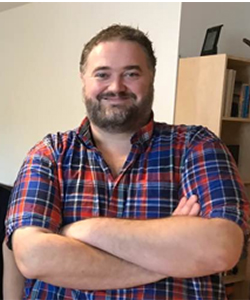(Online) Language Phylogenies: Modelling the Evolution of Language
Presenters: Simon Greenhill
Offered virtuallyVT1TFD2
Recent years have seen Bayesian phylogenetic methods from evolutionary biology applied to questions about language evolution in two major contexts. First, language phylogenies are now routinely used, both in linguistics and elsewhere, to make inferences and test hypotheses about human prehistory. Second, language phylogenies provide a solid backbone to test hypotheses about how aspects of language and culture have evolved in three key ways: by revealing the evolutionary dynamics, by modelling the trait history, and testing coevolutionary hypotheses
This workshop will provide the theoretical background to understand these methods, and demonstrate how to use phylogenetic methods to model and understand the evolution of languages. Through a combination of lectures, discussions, and hands-on exercises, we will explore the ways in which phylogenetics can help us understand the evolutionary relationships among languages, reveal the dynamics of language change over time and space, and shed light into the impact of historical events, geography, and cultural
contact on linguistic diversity.
Using real-world examples and case studies, you'll gain practical experience with phylogenetic software and methods, and the skills to critically evaluate the results these methods provide, including:
1. How to build a good dataset for phylogenetic analysis, pros- and cons- of different datatypes, etc.
2. How to visualise your dataset using network visualisation tools like Neighbornet.
3. How to build phylogenies using Bayesian phylogenetic methods for tree inference (e.g. BEAST2, RevBayes).
4. Bayesian and Maximum Likelihood methods for trait modelling (e.g. Bayestraits, R etc).
Keywords: Language Change, Typology, Bayesian Inference, Language Evolution, Probabilistic Models, Quantitative Methods, Statistics, R
Tuesdays and Fridays, July 8-July 22, 2:30pm - 3:50pm (Virtual Only)
Tuesdays and Fridays
Presenters

University of Auckland, New Zealand
I am an evolutionary scientist who focuses on understanding how languages and cultures evolve. My main research focus is computational methods to study the evolution and diversification of languages. I’ve been particularly involved in developing language phylogenies, where I apply principles from evolutionary biology to trace the relationships and origins of language families, and understand the evolution of language in general. I have also played a key role in developing large-scale databases of linguistic and cultural information, including the Austronesian Basic Vocabulary Database, POLLEX-Online, D-PLACE, Pulotu, TransNewGuinea.org, Lexibank, and Grambank. My interdisciplinary approach, integrating linguistic data with archaeological and genetic evidence, has helped clarify the complex relationships among the world’s languages, to provide a more comprehensive view of how human populations and their languages have evolved,
Tuesdays and Fridays, July 8-July 22, 2:30pm - 3:50pm (Virtual Only)
Tuesdays and Fridays
